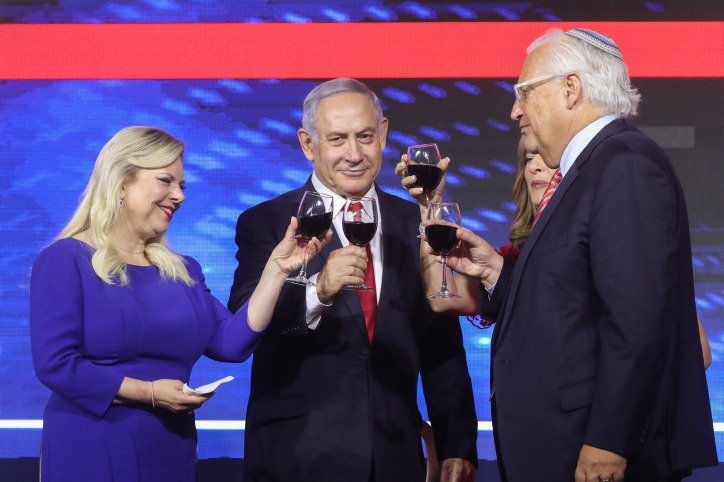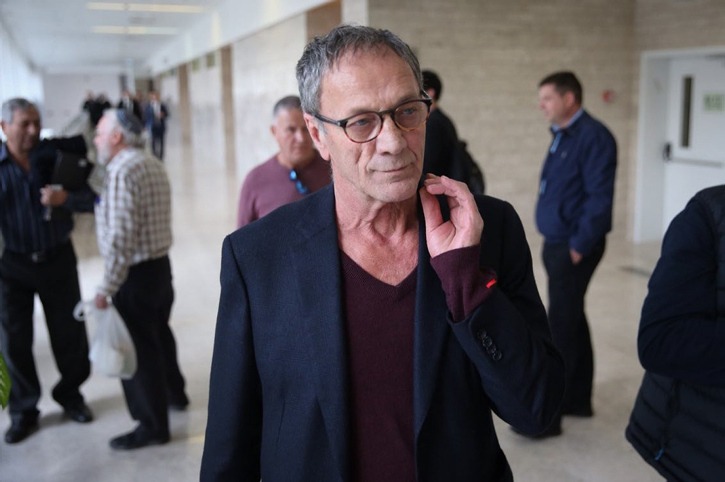“Unfortunately, many people repeat the narrative that in fact we are the ones preventing a deal,” said Gal Hirsch. “But this is a lie.”
Ruthie Blum
(JNS)
Protesters took to the streets of Tel Aviv, Jerusalem, Haifa, Beersheva, Netanya and other locations across Israel on Saturday night in what is being reported as one of the largest demonstrations in the state’s history. According to some figures, there were some 500,000 people at the main rally in the White City and an additional 250,000 spread out elsewhere.
Whether or not these numbers are accurate, anybody observing the crowds in person or on TV could see that they were massive. The explanation for the exceptional turnout was twofold.
First, the entire country was reeling from the recovery the previous weekend of the bodies of six hostages who had been executed in cold blood by their Hamas captors a mere two days or so before they were discovered by Israel Defense Forces troops. The victims of the barbarians who abducted them 11 months ago were identified as 23-year-old Hersh Goldberg-Polin; Eden Yerushalmi, 24; Almog Sarusi, 25; Alexander Lobanov, 32; Carmel Gat, 40; and IDF Master Sgt. Ori Danino, 25.
It was believed by the families of these and other hostages that the first stage of a rumored deal for their release would have seen at least three of the above on the list to return home.
The second reason for the increase in participants in the otherwise waning anti-government protests—the key goal of which all along has been to topple Prime Minister Benjamin (“Bibi”)Netanyahu and his right-wing coalition—is the looming one-year anniversary of the Oct. 7 massacre.
Not a single Israeli is apathetic to the terrifying plight of the 101 remaining captives, and all can only imagine with horror what the spouses, parents, grandparents, siblings and children of the captives are going through every minute of every hour of every day.
To make matters worse, the war against terrorists in Gaza is continuing and claiming the lives of heroic soldiers, while the north is being bombarded by Hezbollah rockets and drones.
IDF Gen. (res.) Gal Hirsch, Israel’s coordinator for the captives and missing, set two records straight on Sunday at the Middle East-America Dialogue (MEAD) summit at the Waldorf Astoria in Washington, D.C.
“Unfortunately, many people repeat the narrative that … we [Israelis] are the ones preventing a deal,” he told Israel Hayom senior diplomatic correspondent Ariel Kahana, who interviewed him on stage at the event. “But this is not the truth. It is a lie. We have never stopped a deal that was on the table.”
That was one necessary restating of the obvious. Another related to domestic protests and foreign treatment of the Jewish state.
“Hamas learns what is happening in Israeli society and wants to divide it by using the issue of the hostages,” Hirsch said. “And I have to put it on the table; for them, this is an achievement. There is a direct connection between the international pressure on Israel and the desire of Hamas to be part of the negotiations. When [it sees] that Israel is under enormous pressure from our best allies, or from the United Nations or Great Britain, or decisions by some and others in the international courts, they say to themselves that they are in no hurry.”
He pointed out that “since November, there have been virtually no negotiations, and they don’t seem to want a deal. Since December, Hamas is not really in the picture. In March, they came for a few days to negotiations in Doha and then disappeared.”
That Hirsch was forthcoming with such an unpopular view among those Israelis whose desperation has blinded them to reality was welcome. Yet it wasn’t actually surprising coming from him.
Far more jaw-dropping—and irresponsibly late in coming—was a similar admission from Benny Gantz, of all people. The former IDF chief of staff and War Cabinet member who resigned from the emergency unity government when he saw polls that indicated he might beat Netanyahu in a non-existent election, has been putting stokes in the wheels of the effort to defeat Hamas by siding with the “anybody but Bibi” crew’s claims that the prime minister isn’t doing enough to “bring the hostages back home.”
Furthermore, Gantz is a member of the choir claiming that Netanyahu’s political considerations are causing him to cater to National Security Minister Itamar Ben-Gvir and Finance Minister Bezalel Smotrich—going as far as to use the inexcusable expression that he’s “held hostage” by the extremist elements in his coalition.
Still, after attending and addressing the MEAD summit, he wrote a post on X indicating his realization that all his maneuvering hasn’t gone over well with the bulk of the Israeli public.
“I met today with U.S. Secretary of State Antony Blinken in Washington,” Gantz tweeted on Monday. “I thanked him for the administration’s deep involvement in efforts to return the hostages, and noted that the proposal for their return [to] the table has broad support both in the Knesset and among the Israeli public, and that Netanyahu will also have a political safety net to advance it.”
He followed this expression of gratitude with the following uncharacteristic punchline: “At the same time, I emphasized that after months of Hamas not accepting the proposal, the world is expected to support Israel in increasing civilian and military pressure on Gaza—this is what led to the first hostage deal, and it is also what will expedite Hamas’s decision.”
It’s probably too much to ask of Hirsch or Gantz to make their declarations to the throngs at Hostage Square on Saturday night. But their doing so would send a message to Hamas’s Gaza chief, Yahya Sinwar, that his ploys are failing and that his end is near.
Image: Gal Hirsch, the government’s point man on missing and kidnapped citizens, attends the lobby for releasing the remaining hostages in the Gaza Strip, at the Knesset, April 10, 2024. Photo by Oren Ben Hakoon/Flash90.













